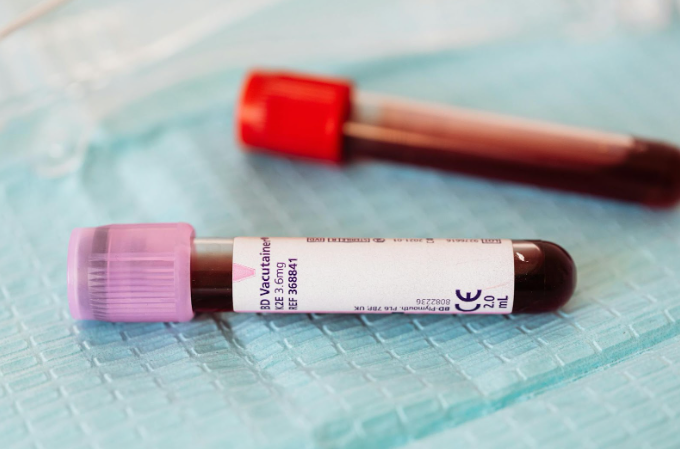The desire to start a family is a powerful one, and the journey to getting pregnant can be exciting – but also sometimes stressful. If you’ve been trying to conceive for a while without success, a fertility clinic appointment might be the next step in your family planning journey. Fertility clinics understand the anxieties surrounding getting pregnant, and they offer a supportive environment and expert guidance to help you achieve your family-building goals.
Taking the First Step: Your Fertility Consultation
A first fertility consultation, also known as a fertility evaluation, is your chance to meet with a fertility specialist and discuss your concerns. Here’s what you can typically expect:
- Reviewing your medical history: The doctor will ask about your overall health, menstrual cycle history (including regularity, duration, and any pain), past pregnancies (including miscarriages and deliveries), and any previous surgeries or treatments (pelvic surgeries, sexually transmitted infections, etc.).
- Your partner’s health: Your partner may also be involved in the discussion, especially if a semen analysis is recommended. The doctor might inquire about their medical history, medications, and any past testicular surgeries or infections.
- Open discussion: This is your opportunity to ask questions about getting pregnant, infertility treatments (different options and success rates), and the fertility clinic’s approach to care. Discuss your timeline and expectations openly, and don’t hesitate to bring up any concerns you might have.
What to Expect: The Details
The initial consultation at a fertility clinic is an information-gathering session to establish a baseline understanding of your reproductive health and fertility. Here’s what you can expect:
- Perform a physical exam: This may include a pelvic exam to assess the health of your reproductive organs and a general physical exam to check for any underlying conditions.
- Discuss your lifestyle habits: The doctor will likely ask about your diet, exercise routine, and any medications you’re taking. These factors can sometimes impact fertility.
- Offer initial tests: Depending on your situation, the doctor might recommend some tests right away to get a broader picture of your reproductive health. These might include blood tests, a pelvic ultrasound, or a semen analysis for your partner.
Be Your Own Advocate
Taking a proactive approach and being your own advocate can ensure you get the most out of your initial consultation at the fertility clinic. Here’s how you can prepare:
- Gather information: Research common causes of infertility and different infertility treatments available (medications, fertility drugs, In Vitro Fertilisation (IVF), etc.).
- Write down questions: Don’t be shy! Jot down any questions you have about getting pregnant, fertility testing, specific treatments offered by the clinic, costs associated with treatment, and anything else that comes to mind.
- Prepare a timeline: Track your menstrual cycle for a few months beforehand and note any concerns you have about your ovulation or periods. This information can be helpful for the doctor.

What Tests Might Be Needed?
The specific tests recommended will depend on your individual circumstances and the doctor’s initial assessment. Here are some common tests used in fertility evaluation:
- Semen analysis: This evaluates the health and quality of your partner’s sperm, including sperm count, motility (movement), and morphology (shape).
- Blood tests: These can check hormone levels (estrogen, progesterone, thyroid hormones), and ovulation function, and rule out underlying medical conditions like endometriosis or Polycystic Ovary Syndrome (PCOS).
- Hysterosalpingogram (HSG): This X-ray examination uses a dye to check for blockages in the fallopian tubes.
- Pelvic ultrasound: This provides a visual assessment of the uterus and ovaries, allowing the doctor to examine their size, shape, and presence of any fibroids or cysts.
Getting Ready for Your Visit
A little preparation can go a long way in ensuring a smooth and productive initial consultation at the fertility clinic. Here are some practical tips to get you ready for your visit:
- Collect medical records: Gather any relevant medical reports from previous doctors or specialists, especially those related to your reproductive health or past pregnancies.
- Bring your insurance information: Understand your insurance coverage for fertility evaluation and treatment. Knowing your coverage beforehand can help you make informed decisions about your next steps.
- Bring your list of questions: Don’t let important questions slip your mind during the consultation. Having a list ensures you get all the information you need.
- Bring a notebook and pen: Take notes during the consultation to remember important information discussed by the doctor. Having a written record can be helpful for referring back to later.
- Wear comfortable clothing: A relaxed state can be helpful during the consultation. Choose comfortable clothing that allows for easy examination if a physical exam is necessary.
- Consider bringing a support person: You may feel more comfortable having a partner, family member, or close friend accompany you to the consultation. Their presence can offer emotional support and help you remember key details discussed during the appointment.
- Arrive early: Allow yourself ample time to find the clinic, complete any necessary paperwork, and use the restroom before your appointment.
Just the Beginning
The main goal of the first fertility clinic appointment is to gather information and discuss your options. Don’t worry about immediate treatment decisions. This is a chance to learn more about your situation and explore potential paths toward achieving your dream of a family.
Open Communication is Key
Remember, open communication is key. Don’t hesitate to express any concerns or anxieties you have about getting pregnant or fertility treatments with your doctor. The fertility specialist is there to guide and support you throughout your family planning journey.
Scheduling your first fertility clinic appointment can feel like a big step, but it’s a proactive approach to achieving your family-building goals. By understanding the process and coming prepared, you can maximise the benefit of your consultation and feel empowered on your path to parenthood.


